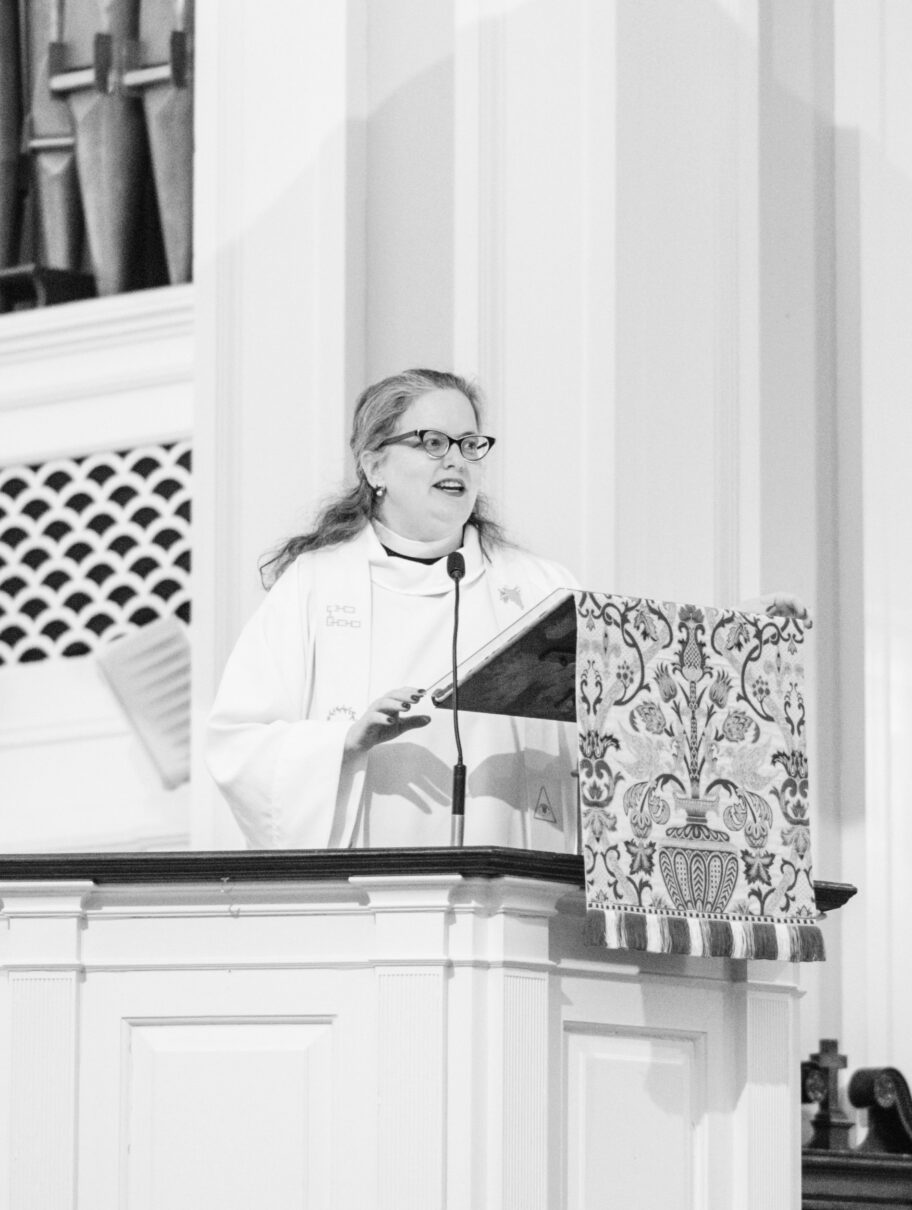Mark Oppenheimer’s rejoinder to David Brooks gave me, as a theologian and Episcopal priest, much to think about, and helped me clarify my own dissents from (and discomforts with) Brooks’s piece, and especially with the piece’s treatment of Judaism. I take his response to be a Jewish critique of Brooks’s account, and I think what I try to begin to sketch here amounts to a Christian critique—which is to say it entails both critical reflection on Brooks’s article and disagreement with Oppenheimer’s characterization of Christianity.
Like Oppeneheimer, I found Brooks’s treatment of Judaism distasteful. How striking that whenever he turned to Judaism, Brooks’s prose turned hokey: “shebang,” “Team Christian,” “you can’t take the Jew out of the boy.” This dictional register is condescending, and made me feel, reading, embarrassed and discomfited. The complexities connected with being a baptized Jew (I am one; as Oppenheimer notes, we don’t know if Brooks is baptized) are many, and are not taken proper account of by saying “you can’t take the Jew out of the boy” or by imagining, as Brooks seems to, that in some smooth syncretism, one can flit between church and synagogue.
Brooks thinks such syncretism is possible because, at least as evidenced by the essay in question, Brooks’s religious inclination is experiential, and the experiences he takes to be central to Judaism are the same as the experiences he takes to be central to Christianity. His piece evinces almost no interest in either the doctrinal claims of Christianity, like the Trinity and the Incarnation, or Christianity’s liturgical practice—c.f. his refusal to say whether he’s been baptized (either he thinks baptism is unimportant—or much less important than joy, lakes, and subway-epiphanies—or he feels the need to obscure his sacramental status).
How striking that whenever he turned to Judaism, Brooks’s prose turned hokey: “shebang,” “Team Christian,” “you can’t take the Jew out of the boy.”
To put all this a different way: Oppenheimer criticizes Brooks for failing to appreciate the centrality of obligation to Judaism, and failing to appreciate the mode of life that Judaism entails; that same criticism can be leveled at Brooks’s depiction of Christianity. It’s no surprise that, as Oppenheimer subsequently reported in his newsletter, the angriest letters he received came from Christians of the Emersonian ilk—for Emersonians also construe Christianity as largely devoid of doctrinal and liturgical obligation. In George Lindbeck’s terms: both the Judaism and the Christianity Brooks engages are of the experiential-expressive sort, and they’re compatible with one another only insofar as they are that.
All that said, the stance vis-a-vis Judaism that Oppenheimer ascribes to Christianity is mistaken, and importantly so. He writes: “Notwithstanding liberal Christian theologians’ attempts to soften their faith’s supercessionist message, it’s undeniable that Christianity is meant to complete Judaism, to make it whole; to be Christian is to deny the sufficiency of Judaism as a religion.” I certainly agree that a Jew who has become a Christian should stop talking like there’s a smooth and unproblematic relationship between the church and the synagogue. But I cannot concur with the dismissive gloss on, e.g., Nostra Aetate. It seems peculiar to include every pope since Vatican II—all of whom uphold as Christian doctrine a rejection of supersessionism—under the rubric “liberal Christian theologians.”
What the rejection of supersessionism entails the church say about baptized Jews is not, I think, fully worked out. But I do think it’s clear that a non-supersessionist Christianity entails Christianity’s accounting Judaism “sufficient”—sufficient for the repair of a world where things have gone badly wrong, which is the same thing Christianity is sufficient for. Christianity entails this because exactly what non-supersessionism comes to is the claim that Christianity removes no gifts from Judaism, and that everything Jews do as Jews is an exchange of intimacy with the God who is in covenantal relationship with them.
As for Oppenheimer’s suggestion that Christianity intends to “complete” Judaism: indeed, Christians should say that Christianity is incomplete, as evidenced by the continued validity and vibrancy of Judaism (Jewish intimacy with God is a gift given to Jews and not to Christians; therefore Christianity is incomplete). But Christianity is not meant to complete Judaism or make it whole—Christianity is meant to respond to the Incarnation, and to draw Gentiles into relationship with the God of Israel. Hence, Christianity can’t construe the rites and observances of Judaism as “cosplay” but as responses to God that God receives with love and pleasure; responses God relishes.
Christianity is not meant to complete Judaism or make it whole—Christianity is meant to respond to the Incarnation, and to draw Gentiles into relationship with the God of Israel.
I’m a Christian not because I think Christianity is “true, completely true, in ways that Judaism is not,” but because I have understood over the last twenty-five years that the God of Israel has made me into a Christian. That does not entail my thinking that Christianity either denies or supersedes Judaism. Of course, Judaism and Christianity make contradictory truth claims, but contradictory truth claims have nothing directly or necessarily to do with supersession, completion, or the ranked adequacy of the two traditions.
Again, Brooks is not able to get at any of this, because he is writing only about his experience. (I’ve done that, too, to be sure: written about my own religious experience; but I began to study theology, and I continued to study history, because I gradually came to see that experience can address some questions, and not others.) The texture of experience means something to and for religious life. But it’s the wrong register in which to begin addressing the ways Judaism and Christianity are related to one another, relations that, among other things, involve a long history of direct and oppressive violence to Jews by Christians.

